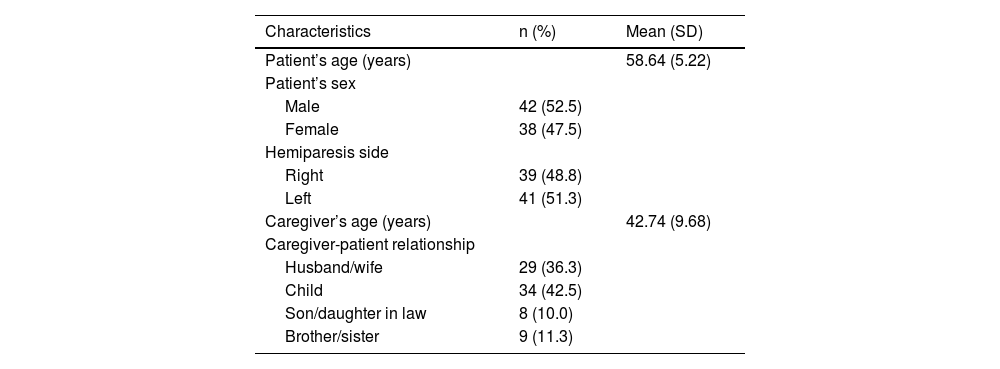The purpose of this study was to identify the determinant factors that influence the adaptation process and quality of life after a stroke.
MethodsThis study is an observational study using a cross-sectional design. Respondents were patients who were 6 months post-discharge after non-hemorrhagic strokae and their family caregivers. Information about respondents was taken from medical record data at two regional general hospitals in West Kalimantan Province, Indonesia. A total of 80 patients were selected using a consecutive sampling method. Theoretical models of patient and caregiver factors that influence adaptation responses and post-stroke quality of life were tested using path analysis.
ResultCaregiver coping, self-efficacy, and illness acceptance had a direct effect on the post-stroke psychosocial adaptation response by 58.1%, with self-efficacy contributing the most (β = 0.668, P < .0001). Self-efficacy, illness acceptance, and healthy behavior had a direct effect on the physiological adaptation response by 24.3%, where self-efficacy also contributed the most (β = 0.272, P < .014). Psychosocial adaptation and physiological adaptation had a direct effect on the quality of life by 54.6%, where psychosocial adaptation showed the largest contribution (β = 0.63, P < .0001).
ConclusionSelf-efficacy contributes the most to both psychosocial and physiological adaptations 6 months after stroke. Psychosocial adaptation and self-efficacy have been proven to be the determinant factors that contribute the most to the quality of life of patients 6 months after stroke.
El propósito de este estudio fue identificar los factores determinantes que influyen en el proceso de adaptación y calidad de vida después de un ictus.
MétodosEste estudio es un estudio observacional utilizando un diseño transversal. Se encuestaron pacientes 6 meses después de su alta tras un accidente cerebrovascular no hemorrágico y sus familiares cuidadores. La información sobre los encuestados se obtuvo de los datos de registros médicos en dos hospitales generales regionales en la provincia de Kalimantan Occidental, Indonesia. Se seleccionó un total de 80 pacientes mediante un método de muestreo consecutivo. Los modelos teóricos de los factores del paciente y del cuidador que influyen en las respuestas de adaptación y la calidad de vida posterior al accidente cerebrovascular se probaron mediante análisis de ruta.
ResultadosEl afrontamiento, la autoeficacia y la aceptación de la enfermedad del cuidador tuvieron un efecto directo en la respuesta de adaptación psicosocial posterior al ictus en un 58,1%, siendo la autoeficacia la que más contribuyó (β = 0,668, P < ,0001). La autoeficacia, la aceptación de la enfermedad y el comportamiento saludable tuvieron un efecto directo en la respuesta de adaptación fisiológica en un 24,3%, donde la autoeficacia también contribuyó más (β = 0,272, P < ,014). La adaptación psicosocial y la adaptación fisiológica tuvieron un efecto directo en la calidad de vida en un 54,6%, donde la adaptación psicosocial presentó la mayor contribución (β = 0,63, P < ,0001).
ConclusiónLa autoeficacia contribuye más a las adaptaciones psicosociales y fisiológicas 6 meses después del accidente cerebrovascular. La adaptación psicosocial y la autoeficacia han demostrado ser los factores determinantes que más contribuyen a la calidad de vida de los pacientes 6 meses después del ictus.











